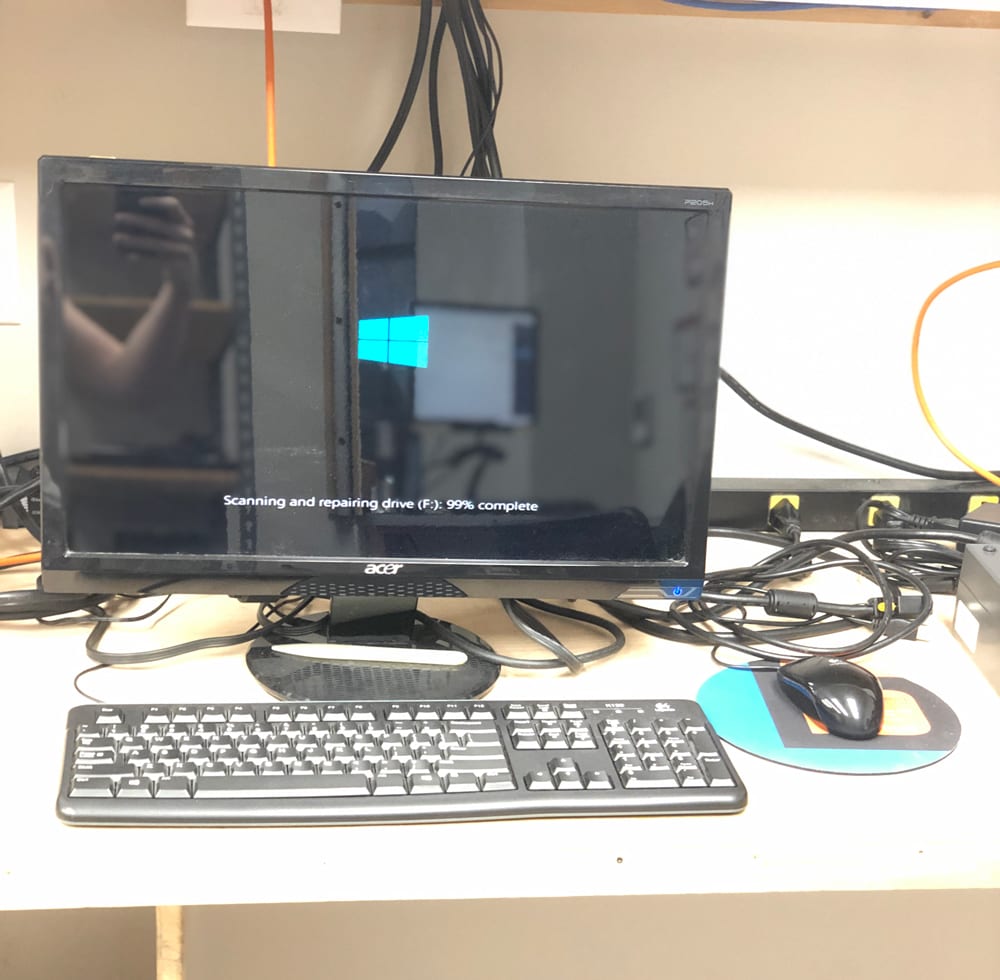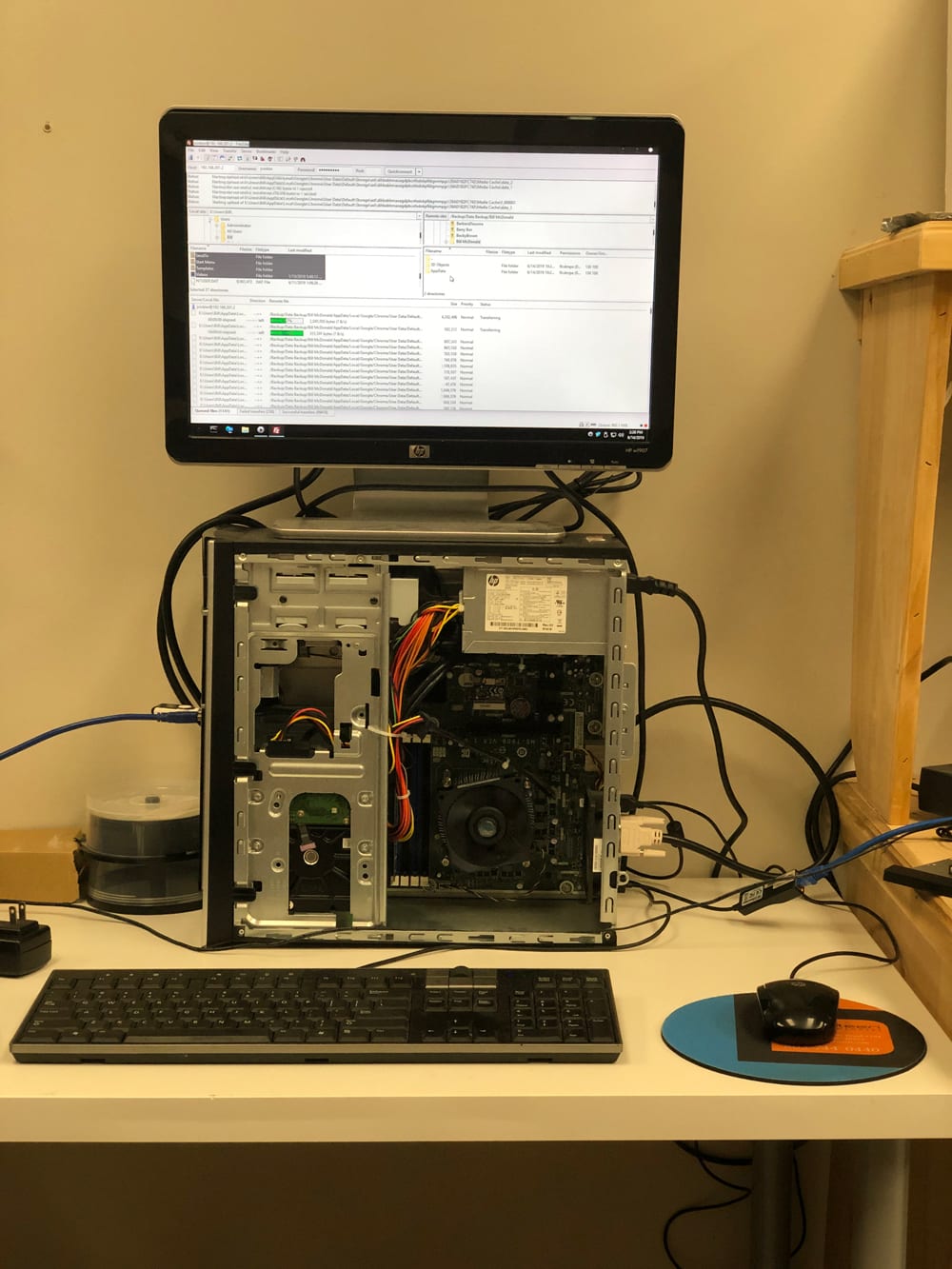Is It Totaled?
That’s the question most people want the answer to when they bring their car into an auto mechanic’s shop after an accident or maintenance issue.
The same principle applies when we see PC’s for computer repair. People bring in machines all day long for repair service, and they want to know whether it’s more cost-effective to have their PC replaced or if they should “just buy a new one”.
As it turns out, there’s no one-size-fits-all answer to this particular question. In fact, every situation will go a little bit differently, because no two computers are identical; as a result, no two solutions will be exactly the same either.
When we take a peek “under the hood” of a computer with someone, we always ask a few questions and investigate further to get a better idea of what we’re dealing with and the ultimate repair cost. After all, price is by far the most important consideration for most people.
Here’s a sample list of our examination for each computer to help pin that down:
- Is the issue software or hardware related?
- How old is the computer?
- Does the computer have specialized programs or equipment or is it a more basic computer?
- Is the problem making the computer completely unusable, or is it mostly just a nuisance?
- How time-sensitive is the repair?
- What is the individual’s budget?
- Does the computer owner have a backup of the data on the computer?
We ask these and many other questions in working to determine the nature of the issue and the best path ahead for the customer.
As you can see, it’s not a straightforward answer. Instead, each computer (and its owner) needs to be assessed on its own to figure out the most effective plan of action.
How Much Will It Cost?
While all of these factors ought to be taken into consideration, there’s usually only one primary factor at play: cost. People really just want to know, “How much will my repair cost?”
The underlying question, of course, pertains to the alternative: “How much will a new computer cost?”
The problem here involves far more than sticker price, however. Let’s walk through an example to illustrate this.
Let’s say that Sarah has a broken computer, and the repair will cost about $400. When looking online, Sarah might see that a brand new basic computer can be purchased for much less than that, probably somewhere in the neighborhood of $200 or $300 for a decent laptop.
On a purely cost basis, Sarah would almost definitely opt for the new computer in order to save money and get a newer device at the same time. What she may not consider, though, are all the “hidden” costs that go with that new PC.
Keep in mind that the $250 (for example) price tag only applies to the computer itself. This does not include any software licences like Microsoft Office, data transfers, warranty protection, or (if necessary) data recovery from the computer in need of repair.
When you add all that up, the number reaches a whole lot higher than the original $250. Data recovery alone can run into the hundreds of dollars and, to top it all off, such services can take a considerable amount of time to complete as it can take hours to get everything working the way it was before the ‘incident’.
Other “hidden” costs of getting a new computer include making sure that you know the differences between the layout of the old machine and the newer one. Microsoft Outlook changes with new software updates, as do internet browsers, so it’s important to take a moment to get acquainted with the new user experience.
In other words, Sarah’s decision is far from easy or clearcut. At the end of the day, she actually has quite a bit to consider, and if you’re in a similar situation, you do too.
To Repair or To Replace: That Is the Question
In order to know whether to repair or replace your computer, there’s a lot to examine and review. Certainly, it’s important to take a look at it with a technician and compare the entire price (including “hidden” costs) of a new computer with that of the repair itself.
If you want some help determining what your options are, let us know. Fortunately, Bristeeri Technologies covers PC repair throughout the entire Midlands area of South Carolina.
We offer PC repair, laptop repair, desktop repair, laptop screen replacement, Windows support, virus removal, and even data recovery.
Let us know what you need, and we will get started right away. When it comes to computer repair and replacement, nobody does it like the good people at Bristeeri Technologies.
We guarantee it.


